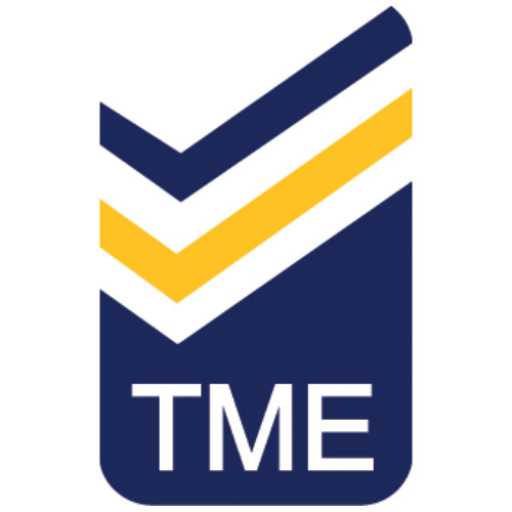The Logistics program at Chisholm Institute offers a comprehensive education designed to equip students with the essential skills and knowledge needed to excel in the dynamic field of supply chain management and logistics operations. This program covers a broad range of topics, including inventory control, freight forwarding, transportation management, warehouse operations, and procurement processes. Through practical training and industry-relevant coursework, students gain a thorough understanding of how to coordinate and optimize the movement of goods from suppliers to customers, ensuring efficiency and cost-effectiveness across supply chains. The curriculum emphasizes both theoretical concepts and hands-on skills, preparing graduates to meet the demands of modern logistics environments characterized by globalization and technological advancements. Students will learn to utilize current logistics management software and technology, facilitating real-world problem solving and decision-making. The program also incorporates industry placements and projects, providing valuable work experience and professional networking opportunities. Graduates of this program are well-equipped to pursue careers in logistics coordination, supply chain planning, warehouse management, freight forwarding, and other related roles within various industries such as manufacturing, retail, and transportation. The program is suitable for individuals seeking a foundational qualification or professionals aiming to enhance their expertise in logistics. With industry-relevant training, experienced instructors, and strong links to businesses, Chisholm’s Logistics program prepares students to contribute effectively to the logistics sector and support the efficient movement of goods locally and globally.
The Logistics program at Chisholm Institute provides students with comprehensive knowledge and practical skills necessary for a successful career in the dynamic field of logistics and supply chain management. This program covers a broad range of topics essential to understanding the complexities of modern logistics operations, including transportation, warehousing, inventory management, procurement, and distribution. Students will learn how to coordinate and optimize the movement of goods from suppliers to consumers, ensuring efficiency and cost-effectiveness throughout the supply chain.
Throughout the course, learners will develop a thorough understanding of logistics planning and administration, gaining insights into the various technological systems used to manage logistics processes. The program emphasizes practical skills, with opportunities for hands-on training using industry-standard tools and procedures. This approach ensures that graduates are well-prepared to tackle real-world challenges faced by logistics professionals.
The curriculum includes modules on customer service, health and safety regulations, environmental considerations, and emerging trends in logistics such as automation and digitalization. Students will also explore the importance of sustainability and ethical practices within the supply chain, aligning their skills with current industry standards and expectations.
Career pathways upon completing the Logistics program are diverse and include roles such as logistics coordinator, supply chain analyst, warehouse supervisor, transportation manager, and procurement officer. The program aims to equip students with the critical thinking, problem-solving, and communication skills needed for leadership positions in the logistics sector.
Chisholm’s experienced instructors bring industry insights into the classroom, enriching learning with practical examples and current industry practices. Additionally, students benefit from industry placements and work experience opportunities that help build professional networks and enhance employment prospects upon graduation.
Whether you are seeking to enter the logistics industry or advance your existing career, the Logistics program at Chisholm Institute provides a solid foundation of knowledge combined with practical application. This prepares graduates not only to meet current industry demands but also to adapt to future innovations and changes within the global supply chain environment.
Program Requirements: The Logistics Certificate III program at Chisholm Institute is designed to provide students with foundational skills and knowledge necessary for entry-level roles within the logistics and supply chain industry. Prospective students are expected to have a minimum literacy and numeracy level equivalent to Year 10 or the Certificate I level, ensuring they can engage with classroom instruction and practical assessments effectively. Prior secondary education completion or relevant work experience in related fields can be advantageous but is not mandatory for admission. The program emphasizes the development of core competencies including warehousing and storage, basic inventory control, freight processing, and safety procedures. Participants will learn about the use of industry-standard equipment such as forklift trucks, pallet jacks, and other handling tools, adhering to occupational health and safety regulations. Enrolment also requires students to demonstrate a commitment to teamwork, communication, and problem-solving skills, as logistical operations often involve coordinated efforts among diverse teams. Candidates must be prepared to undertake practical assessments which may include simulated warehouse tasks, equipment operation, and safety protocol demonstrations. Some modules may require completion of workplace learning components, necessitating students to undertake supervised practical placements in real-world logistics environments. Throughout the course, students will also be introduced to basic business and customer service principles relevant to the logistics sector. Entry requirements may vary; the institute recommends prospective students consult with admissions officers for specific prerequisites. No specific prerequisite qualifications are mandated, but literacy and numeracy skills are essential for academic success. Additionally, as logistics roles often require adhering to strict safety standards, students should have a responsible attitude towards safety and compliance. Successful completion of the Certificate III in Logistics may lead to employment as a warehouse operator, order picker, or freight handler, or may serve as a pathway to higher-level qualifications in supply chain management. matriculatory requirements include submission of a completed application form, proof of identify, and, where applicable, evidence of prior learning or work experience in logistics or related industries. The program aims to equip students with practical skills aligned with industry demands, ensuring they meet the essential criteria for entry into the logistics workforce while also providing a foundation for further education and career development within the supply chain sector at Chisholm Institute.
The Logistics program at Chisholm Institute, TAFE VIC, offers a range of financing options to support students throughout their studies. Prospective students can explore various financial assistance schemes designed to make education more accessible and affordable. The most common method of funding is through VET Student Loans, which is available for eligible students enrolled in certain diploma and advanced diploma courses, including logistics-specific programs. VET Student Loans allow students to defer tuition fees, repaying them through the tax system once their income reaches a specified threshold, thereby easing the immediate financial burden.
Additionally, students can access government scholarships and grants aimed at supporting students in vocational education and training (VET). These financial aid options are often targeted toward specific groups such as Indigenous Australians, students facing financial hardship, or those undertaking their first higher education qualification. Chisholm Institute also provides payment plans and fee installments, which allow students to pay their tuition fees in manageable installments over the duration of their course, reducing upfront costs.
For students seeking further financial assistance, there are also study support options including charity or community-based bursaries. Many students also leverage part-time employment opportunities facilitated through the institute's career services, which can help offset costs associated with their studies. International students enrolling in logistics programs are subject to different fee structures, typically paying full international tuition fees, but may have access to scholarships dedicated to international students.
Chisholm Institute emphasizes transparency in its fee structure, and students are encouraged to consult with the institute’s financial aid office or website to get detailed, up-to-date information on specific costs and available support. Overall, the institute’s comprehensive approach to financing aims to reduce financial barriers and enable students to focus on gaining valuable skills in logistics and supply chain management.
Logistics is a vital field within supply chain management that focuses on the efficient movement and storage of goods, services, and information from point of origin to point of consumption. At Chisholm Institute, TAFE VIC, the Logistics program is designed to equip students with the essential skills and practical knowledge required to excel in this dynamic industry. The program covers a wide range of topics, including inventory management, transportation planning, warehousing, procurement, and the use of industry-standard software. Students will gain an understanding of the logistical processes that underpin the global supply chain, preparing them for roles in warehouses, freight companies, distribution centers, and logistics planning departments.
The curriculum emphasizes both theoretical foundations and hands-on practical experience, often incorporating real-world projects and internships with logistics companies. This approach ensures that graduates are job-ready and can adapt to various roles within the logistics sector. The program also explores contemporary issues such as sustainability in logistics, technological advancements like GPS tracking and automation, and the importance of safety and compliance regulations. Students will develop critical skills such as problem-solving, data analysis, teamwork, and communication, which are highly valued in the industry.
Graduates of the Logistics program can pursue diverse career pathways, including roles such as logistics coordinators, inventory controllers, supply chain analysts, freight administrators, and warehouse supervisors. The program typically offers pathways to further studies or certifications, enhancing career advancement opportunities. Chisholm Institute is known for its industry connections and focus on experiential learning, which benefits students by providing opportunities for practical placements and engagement with industry professionals. Overall, the Logistics program at Chisholm Institute aims to prepare a skilled workforce capable of supporting Australia's domestic and international supply chains, contributing to economic growth and operational efficiency across various sectors.






